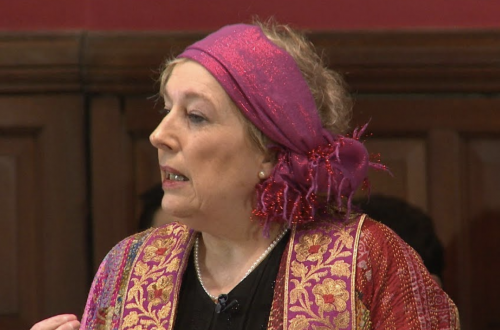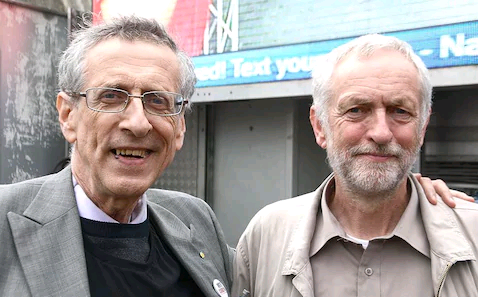This is a cross post by Eric Lee
One of the things that struck me when I interviewed Vietnam veterans two decades ago for my book, Saigon to Jerusalem, was what happened to them when they returned home from the war.
It was not so much that they were spat upon (which happened, but rarely) or honoured (which also happened, but even more rarely) but that they were ignored.
They were invisible. It was a war that most Americans wanted to forget.
It was a long process for the Americans to come to terms with Vietnam and the process began with the building of that extraordinary memorial in Washington DC, with its stark rendering of the names of each of the tens of thousands of Americans who died there.
Today in London, the Queen is dedicating a new war memorial in Green Park to the memory of the more than 55,000 British airmen who fought and were killed while serving in Bomber Command during the Second World War.
This new memorial may serve a similar purpose, both for the surviving veterans who will finally feel honoured and no longer invisible, but more important, it will help ignite a debate about historical memory.
Even while the war was going on, some people in Britain and elsewhere were beginning to have their doubts about what Bomber Command was doing.
It was not only a question of whether the strategic bombing offensive was having any effect in shortening the war. That’s a legitimate debate and continues to this day.
But there was also debate beginning about whether Britain’s sustained aerial bombardment of German cities was moral — or even legal.
What has been forgotten in the decades since is that the idea that the RAF was somehow engaged in war crimes was one promoted first and foremost by German Nazi propaganda.
It was Goebbels who decided that the February 1945 raid on Dresden was a war crime, and the Nazis in their final months made the most of that allegation. They wildly inflated the numbers of those killed. They did all they could to convince the world that Dresden was a city of culture, not a legitimate military target.
Most German propaganda previously had little measurable effect on Britain. But this idea seemed to strike a chord. Perhaps there were already some doubts and second thoughts in the minds of British leaders.
After all, the bombing offensive didn’t lessen once Germany could no longer defend itself. Instead, it was intensified. Cities like Dresden were essentially without defences by the final months of the war.
Though Arthur “Bomber” Harris, who led Bomber Command for most of this time, never doubted what he and his men were doing, Churchill apparently was not fully convinced.
When the war ended and Churchill made his victory speech, he pointedly failed to pay tribute to the men of Bomber Command — even though half of them had been killed by German anti-aircraft batteries and fighter attacks.
Over time, Bomber Command is less and less remembered for daring raids like the famous “dam busters” raids on the Ruhr and Eder valleys, and more for over-the-top assaults like the 1,000 bomber night raids on Cologne, or the firestorms unleashed in Hamburg, and most famously for Dresden.
It’s vitally important that the British — and others — re-learn what was forgotten in the intervening years.
In September 1939, Hermann Goering famously told the Luftwaffe“No enemy bomber can reach the Ruhr. If one reaches the Ruhr, my name is not Goering. You may call me Meyer.” It was vital for the Allies to undercut German confidence in the Nazi regime, and to destroy the myth of German military invincibility.
The decision to unleash the bombers against Germany was a desperate act to bring the war home to the Nazis, to undermine their ability to fight and thereby to shorten the war.
In doing so, the men of Bomber Command made a huge contribution to the final victory and thereby saved lives. Thousands of lives.
That’s why it’s so important to build this memorial and to remember the heroism of the young men who risked their lives and who died in their tens of thousands in the strategic bombing offensive against Nazi Germany.
And there’s a broader issue as well, one relevant to today’s world.
That lesson is that war is not a game of cricket. It’s not even rugby.
As the great American Civil War general William Tecumseh Sherman put it, “war is hell.”
To bring down ruthless totalitarian regimes sometimes requires determination, heroism, daring — and violence.
The German Nazis unleashed their own version of hell on Europe. And they reaped the whirlwind.
In today’s world, democracies must be able to stand firm and, where necessary, apply force to stop a totalitarian regime from committing war crimes and crimes against humanity.
That’s why it was right for today’s RAF to follow in the footsteps of Bomber Command and help the Libyan people free themselves from the murderous rule of Qaddafi.
Tyrants everywhere must learn that Herman Goerring’s boast was an empty one, just like Saddam Hussein’s promise that if attacked, Iraq would fight the “mother of all battles”.
Britain is today coming to terms with Bomber Command, several decades later than would have been appropriate, but at least the memorial has now been built and is today being dedicated.
Their heroism, and their sacrifice, must never be forgotten.


